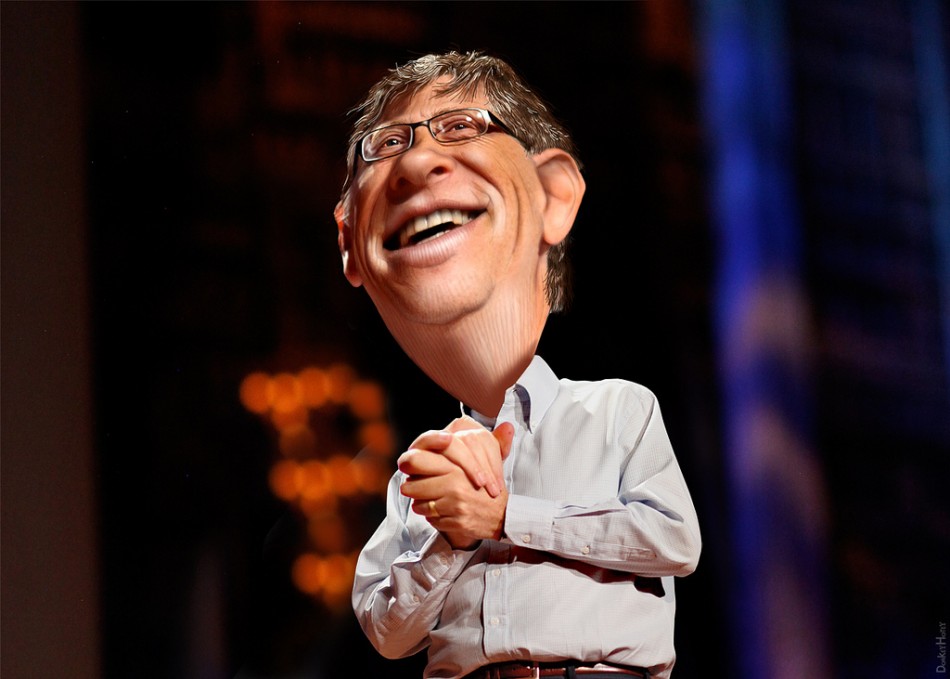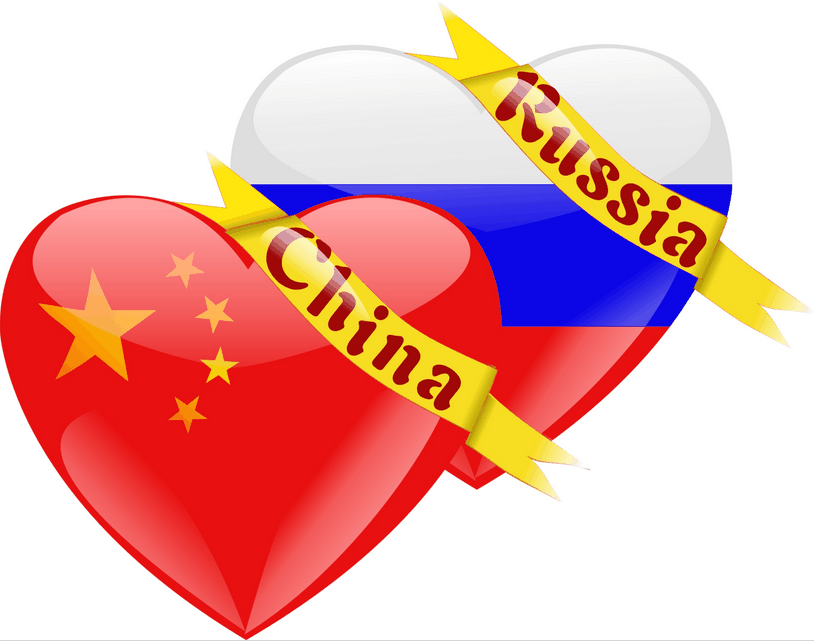In another propaganda piece by the Western Media, the WSJ reports (see report below) that Russia’s rich are freaking out. They have already lost billions in the Russia’s stock market collapse and might face margin calls if things continue to deteriorate. Further, if sanctions are implemented, the Oligarchs stand to lose countless billions more. Nice try WSJ, but you don’t get.
Putin, doesn’t give a flying fuck about Russia’s stock market or Russia’s rich at this juncture. He is in full control. I have been saying this since this whole thing started, but no one gets it. Putin is committed to go to war. Against Ukraine, the US or NATO. Whoever decides to intervene into Ukraine will be in a war with Russia. Immediately. There is no way that Putin or Russia will let Ukraine fall into NATO hands. I am not sure why our administration doesn’t understand that.

Did you enjoy this article? If so, please share our blog with your friends as we try to get traction. Gratitude!!!

Click here to subscribe to my mailing list
Why Putin Doesn’t Care About The Russian Stock Market -or- Russia’s Rich Google
Russian Richest Face Margin Calls With Billions at Stake
“Russian businessmen are very scared,” the 54-year-old former billionaire, who served in the Soviet embassy in London during the Cold War and owns Russia’s National Reserve Corp., said by phone. “There are risks to the Russian economy. There could be margin calls, reserves might be drawn down, exchange rates may fall and prices will rise. This worries me.”
Billionaires in Russia and Ukraine risk further losses as market volatility and the threat of Iran-style economic sanctions intensify following Russia’s incursion into Crimea. Since Feb. 28, the day unidentified soldiers took control of Simferopol Airport in southern Ukraine, Russia’s 19 richest people have lost $18.3 billion, according to the Bloomberg Billionaires Index, a daily ranking of the world’s 300 richest wealthiest people.
“The instability caused by the situation in Crimea could be a problem for the oligarchs,” Yulia Bushueva, who helps manage $500 million at Arbat Capital in Moscow, said in a telephone interview. “If a billionaire pledged their stakes in publicly traded companies as collateral for a line of credit, they could face margin calls and have to re-negotiate with banks.”
The U.S. and the European Union are threatening sanctions against Russia if it doesn’t back down from annexing the Black Sea province, which is holding a referendum in two days to join Ukraine’s former Soviet-era master.
‘Negative Consequences’
“All sides now understand each other’s positioning and understand the constraints each other face,” Michael O’Sullivan, chief investment officer of Credit Suisse Private Banking, said in a telephone interview. “It’s now clear as well that an escalation would have negative consequences on pretty much all the players.”
How the Crisis Began, Where It’s Heading
The European Union last week froze the assets of 18 Ukrainians, including “hundreds of millions of euros” in the Netherlands controlled by former President Viktor Yanukovych and his son, Oleksandr, Dutch Finance Minister Jeroen Dijsselbloem said March 6 on the television show Pauw & Witteman.
Dmitry Firtash, a 48-year-old Ukrainian billionaire who made his fortune importing Russian natural gas, was arrested in Vienna Wednesday by an organized-crime unit of the Austrian police on a warrant issued by the U.S. Federal Bureau of Investigation, according to a statement by the country’s Interior Ministry.
Outside Russia
He is alleged to have paid bribes and formed a criminal organization, according to the warrant, issued after an FBI investigation that began in 2006, the ministry said.
One Russian billionaire, who asked not to be identified because of the sensitivity of the situation, said he was concerned about the effect potential sanctions might have on business. He said he’d consider buying assets outside of Russia if sanctions were imposed.
Dmitry Peskov, a Kremlin spokesman, said in a March 11 telephone interview that “there were no consultations” with Russian businessmen and that they “have not expressed any concern” over the situation.
According to a March 13 report in the Wall Street Journal, a spokesman for President Vladimir Putin acknowledged that business leaders in Russia have been in “constant contact,” and that Putin had not met with any of them. The report said a recent meeting between the country’s industrialists and high-ranking government officials turned “tense” when the subject of sanctions came up.
Broken Sanctions
Doing business under sanctions might not be all bad for Russian entrepreneurs, according to South African billionaire Natie Kirsh.
“There are opportunities that come out of sanctions,” the 82-year-old, who started building his $5.9 billion retail and real estate empire during apartheid, said by phone from Johannesburg. “Sanctions can be broken. It always depends on the extent of the sanctions and how they take.”
F.W. de Klerk, South Africa’s last president during the apartheid era, said the country and businessmen were able to work around the sanctions levied by the U.S. beginning in 1986.
“The sanctions delayed change in South Africa because it made us look for ways to evade them,” de Klerk, 77, said in a telephone interview from Cape Town. “We worked with the business community to find ways to keep companies going. In the end, not many factories shut down, they just changed ownership.”
Ukraine’s Richest
Kirsh said the Cold War could reemerge out of Russia’s incursion in Ukraine, and energy suppliers outside of Russia will benefit if sanctions are levied.
“It’s a different story with Putin,” Kirsh said. “South Africa doesn’t supply 30 percent of Europe’soil and gas. There will be some people outside of Russia that will see a huge benefit. Some people who supply oil and gas for Russia will not believe how busy they will be.”
Rinat Akhmetov, Ukraine’s richest person, has lost more than $550 million since Feb. 28. The 47-year-old billionaire, who owns Donetsk, Ukraine-based conglomerate System Capital Management Group, expanded his business with help from Yanukovych. Akhmetov’s DTEK Holdings BV was the only bidder in two of five auctions of state-owned energy assets, which were organized by the former president’s government.
‘Maintain Relations’
The billionaire no longer supports his longtime ally and has committed to rebuilding the government of Ukraine, according to a March 10 report in London’s Telegraph newspaper. Elena Dovzhenko, a spokeswoman for Ahkmetov, said the billionaire wasn’t immediately available to comment.
“He understands that the previous state of things is over,” Ihor Burakovsky, head of the Board of the Institute for Economic Research and Policy Consulting in Kiev, said by phone. “He will try to maintain relations with all the significant players in the country.”
Ahkmetov on March 9 met with Vitali Klitschko, leader of Ukraine’s UDAR party and a potential candidate for Ukraine’s presidency, to discuss the situation, according to a statement from UDAR.
“The use of force and lawless actions from outside are unacceptable,” the billionaire said in a separate statement on March 2. “I state with all due responsibility that SCM Group, which today employs 300,000 people and represents Ukraine from west to east and from north to south, will do everything possible to maintain the integrity of our country.”
State Assets
The 19 Russian billionaires on the Bloomberg ranking have businesses, homes and bank accounts scattered around the globe valued at more than $208 billion. Some of that wealth was accumulated through government ties that enabled them to acquire former state assets during privatization in the 1990s, transactions Putin called “unfair” in 2012. They have since moved control of the assets out of Russia and into the West.
Alisher Usmanov, the country’s richest person, controls his most valuable asset, Metalloinvest Holding Co., Russia’s largest iron ore producer, through three subsidiaries, one of which is located in Cyprus, an EU member nation. The 60-year-old also owns a Victorian mansion in London that he bought in 2008 for $70 million, according to a May 18, 2008, Sunday Times newspaper report.
He’s lost $1.5 billion since the crisis began, according to the Bloomberg ranking.
“We are concerned with the possible sanctions against Russia but don’t see any dramatic repercussions for our business,” Ivan Streshinsky, CEO at USM Advisors LLC, which manages Usmanov’s assets, including stakes in Megafon OAO and Mail.Ru Group Ltd., said in an interview at Bloomberg’s offices in Moscow today.
Greater Compliance
“Mail.Ru and Megafon revenue is coming from Russia and people won’t stop making calls and using the Internet,” he said. “Metalloinvest may face closure in European and American markets, but it can re-direct sales to China and other markets.”
Transferring ownership abroad may prove problematic if sanctions are imposed. The U.S. Securities and Exchange Commission and other regulatory authorities may tell U.S.-based banks to exhibit greater compliance with the existing Foreign Corrupt Practices Act, Standard Bank (STAN) Group Ltd. said in a March 11 report.
The report also said the U.S. might investigate Russia’s compliance with the Financial Actions Task Force on Money Laundering and Terrorism Financing in an effort to push the country onto a black list, a move that would prevent global banks from dealing with Russian lenders.
‘Nuclear Blow’
The third escalation would be actual asset freezes, which perhaps would be “the nuclear blow, as it would risk countermeasures from the Russian authorities,” according to the Standard Bank report.
“Currently, there is no clear link between events taking place in Ukraine and any steps that might be available to freeze assets of wealthy Russian citizens overseas,” Marta Khomyak, a partner of London-based PCB Litigation, said in a telephone interview. “However, given the pace of events and the underlying political tensions, I would not rule out attempts being made to attack various Russian interests overseas.”
Sanctions related to the Crimea crisis so far have been levied on individuals the EU said were responsible for the “misappropriation of state funds” and “human rights violations,” according to the regulation passed by the Council of the European Union on March 5. President Obama echoed the language in a briefing with journalists at the White House the next day.
Lisin’s Steel
“Russians who are making bank transactions and opening new accounts will now be confronted with increased suspicion,” Valery Tutykhin, an attorney with John Tiner & Partners, a Geneva-basedlaw firm that specializes in wealth management, said in an e-mail.
The crisis also threatens to derail the relationship between the West and the Russian businesses the billionaires control. Among the companies potentially affected is OAO Novolipetsk Steel (NLMK), the country’s most-valuable steelmaker, which is controlled by Vladimir Lisin, Russia’s 13th-richest person. The company derived 21 percent of its $12.1 billion in 2012 revenue from Europe, according to data compiled by Bloomberg. Sergey Babichenko, a spokesman for NLMK, declined to comment.
“In the event of a European and U.S. ban on exports of the metal, NLMK’s position would be weakest among Russian steelmakers, because it ships steel slabs to its own mills in Europe,” Kirill Chuyko, head of equity research at BCS Financial Group said. “We see such actions as unlikely for the time being.”
Amicable End
With its stock market falling and interest rates rising, Russia has suffered most of the financial pain the crisis has inflicted.
“To the extent that they can, the businessmen in Moscow will be making their sentiments and voices heard,” said Credit Suisse (CSGN)’s O’Sullivan. “I’m not sure the Kremlin will listen to them.”
Billionaire Naguib Sawiris, Egypt’s second-richest person, who’s done business with North Korea, Russia and Pakistan through his telecommunications companies, said he’s concerned about potential sanctions.
“Putin has proven that toward the end of any crisis, he always goes back to reason and finds compromises,” Sawiris, 59, said in a March 14 e-mail. “Therefore, I bet this crisis will end amicably.”
 Did you enjoy this article? If so, please share our blog with your friends as we try to get traction. Gratitude!!!
Did you enjoy this article? If so, please share our blog with your friends as we try to get traction. Gratitude!!!











